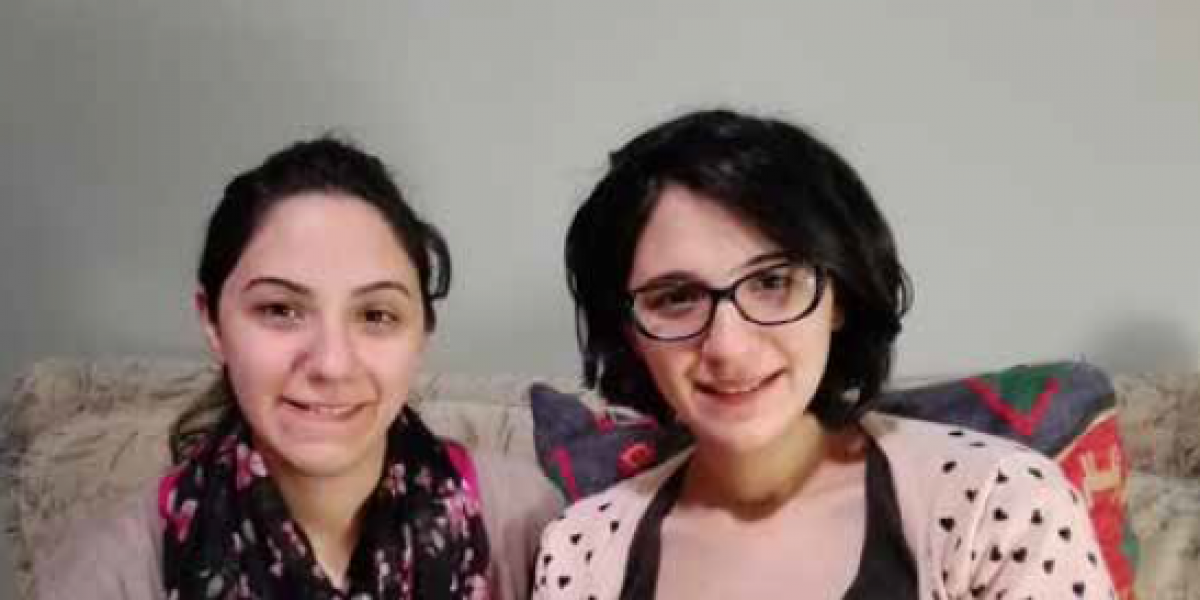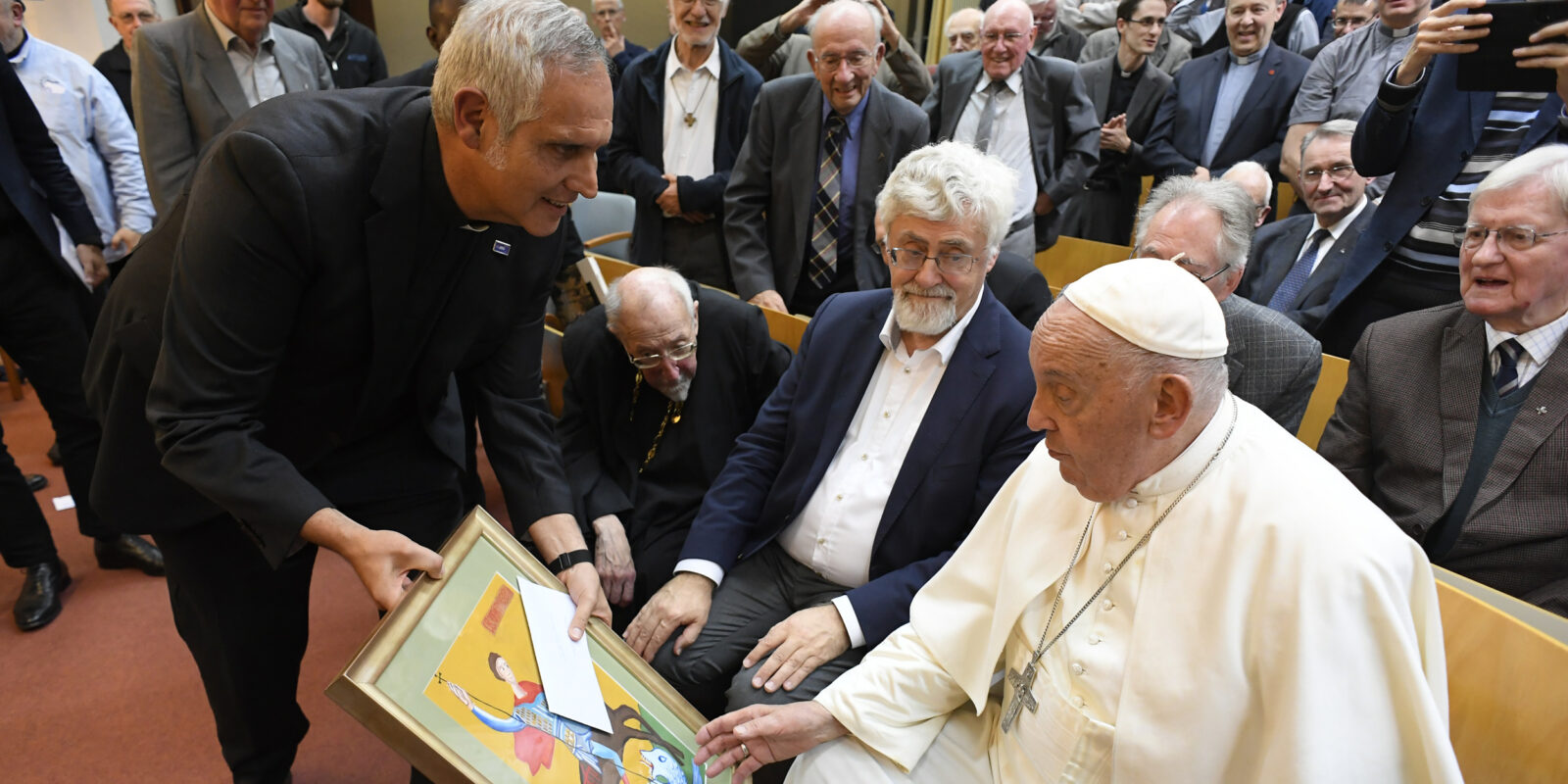
Brussels, 13 March 2017 – Twin sisters Nagham and Shadan taught life-skills to displaced children at a JRS centre in Syria until the war forced them out of their country. Now they’re set to replicate the program with JRS Belgium.
“I believe each child has a treasure inside. Life-skills is about digging together to find this treasure.” Shadan shines when she talks about her dream job. Together with twin sister Nagham, she taught lifeskills to displaced children at a JRS centre in her native Syria and says she saw “remarkable” developments.
After war forced Shadan and Nagham out of their country, they worked with children again as soon as possible, at the centre for asylum seekers where they lived on reaching Belgium.
And now, together with JRS Belgium, the twins are set to replicate the life-skills program they did with JRS Syria. This is a mission for Shadan. Her face, eyes, voice echo enthusiasm, infectious even through a blurry Skype screen. Interviewing Shadan, I find myself wishing I had a teacher like her years ago.
I hear about the treasure within when I ask Shadan about the meaning of peace. The question is prompted by the stated goal of the life-skills program: “Let’s help children live in peace with themselves so they can live in peace with others.”
Shadan replies: “One part of peace is the ability to be yourself, not to be afraid that if you are different, you won’t be loved. You’ll only have peace when you are sure, deep inside, that you are loved because of who you are. You need to believe in yourself, that you have a treasure inside.”
Shadan and Nagham started working with JRS Syria after they were displaced from Homs. At the suggestion of Syrian Jesuit Ziad Hilal SJ, they got involved in a centre in Kafroun, a town near Tartous, one of several JRS centres for children throughout Syria that offered informal education and psychosocial support. The sisters worked there for two years.
How did they help children aged between six and 12 years to find their personal treasure and to carve out a corner of peace in a country torn apart by violent conflict? Not in so many words but through a series of skilfully prepared lessons that used practical tools to teach specific skills and values.
“We focused first on values because this was one of the first things lost in the war, so honesty, respect and accepting each other’s differences. This last was really essential because Muslims and Christians came to the centre and sat in the same classroom, at a time of war when they were hearing a lot of stories about each other’s religion.”
However the JRS team soon felt “something was missing”, namely that children needed to articulate their suffering. “Many children had lost one or more relatives because of the war, sometimes they witnessed their death… really painful,” says Shadan. “We said we need a way to enable the children to express themselves and to deal with their feelings.”
This was a tough call. “The kids denied negative feelings. They’d talk about a painful experience and, you ask, how did you feel? Nothing. So we tried to get them to recognise their feelings, to acknowledge that, yes, I was angry then. And what to do with this anger?” Movies, role plays, drama, yoga, puppets… all played a role in helping the children to make sense of what was going on. “We never lectured kids, we encouraged them to find the solution in themselves.”
A year ago, Shadan and Nagham had to leave Syria, travelling along the so-called Balkan route to reach Belgium where they applied for refugee status. Housed in a centre to await the outcome of their application, they eagerly got back to work. “We had a lot of time, there were children in the camp, and there was nothing done for them. So we organised weekly sessions for kids from Syria, Iraq and Afghanistan.”
Shadan describes those sessions as “really special”. Why, I ask. “They gave me the feeling that I am useful again after all this time. And, even in just a short time, we could see the difference in the children.”
One change that stands out for Shadan is how children from different countries started to play together. “Iraqis and Syrians, for example, got to know each other in the sessions and saw that, yes, he could be funny, he could be my friend. Then we’d see them playing together afterwards.”
It was also hectic, with 40 children of all ages attending. “We couldn’t say no,” recalls Shadan. “If we said no to the very little ones, they would cry and bang on the door.
The children kept asking when is the next session?”
Fast forward two and a half months, Shadan and Nagham got protection, left the camp and went to live in Ghent. After months getting used to life in Belgium, they visited the JRS office in Brussels, where they received a warm welcome. JRS Belgium now hopes to support life-skills programs in some centres for asylum seekers, and perhaps to have Belgians trained too.
To use an overtired cliché, this sounds like “win-win” for JRS, for refugee children, and for the twins themselves. Shadan describes the plans as “a dream come true”. She adds: “We are very excited, this is what we dreamed, it is what we like and what I think we are good at. I feel I can give a lot. This is for me a joyful work and to have a chance to do it here is amazing.”
– Danielle Vella
“I believe each child has a treasure inside. Life-skills is about digging together to find this treasure.”

